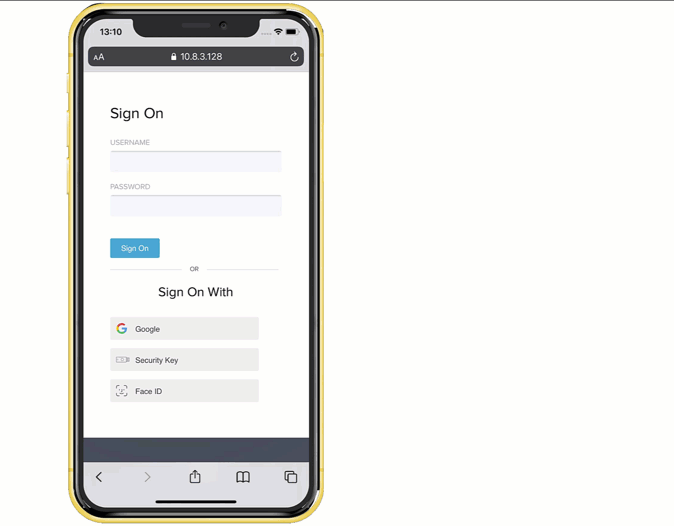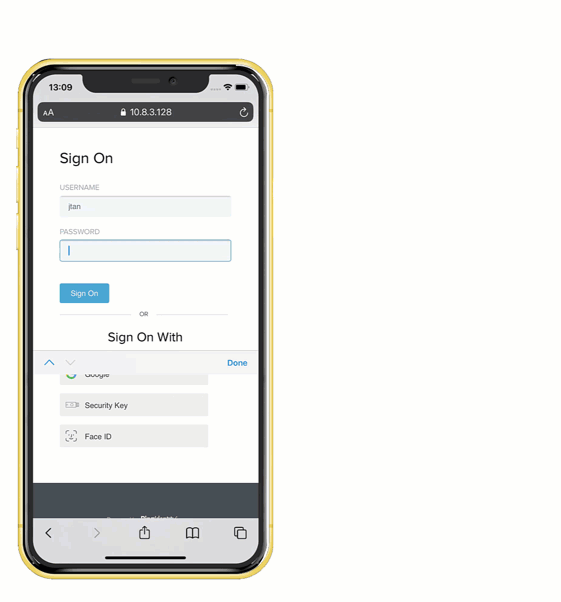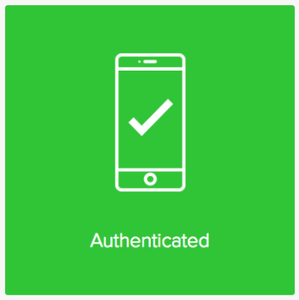Authenticating with PingID using iOS or iPadOS biometrics
Authenticate using the built-in biometrics on your iPhone or iPad device with PingID, when accessing your account or app using a web browser.
Before you begin
-
Ensure that you paired your iOS or iPadOS biometrics device with PingID. For information, see Pairing your iOS or iPadOS biometrics device.
-
Use a browser that supports FIDO2 biometrics, such as Safari 14 or later, and make sure that you have the latest version of the browser.
-
Ensure that you are using a device with iOS or iPadOS 14 or later, and have biometrics set up on your device (such as Face ID or fingerprint).
Use cases
The authentication process varies slightly depending on your browser and your organization’s implementation.
The following animations demonstrate the two most common implementations of biometrics authentication with PingID for iOS:
-
Passwordless authentication: Authenticate using your biometrics, without entering a username or password.

-
Second factor authentication: Enter your username and password, and then authenticate with your biometrics device.

Steps
-
On your iPhone or iPad, open a browser window and sign on to your account or access an application that requires authentication.
Depending on your browser, an additional window might appear in your browser prompting you to authenticate.
Result:
An Authentication window appears.
-
Tap Continue and then authenticate using the fingerprint or face sensor on your device.
If you have more than one account associated with your device, you’ll see a list of accounts. Select the account you want to access and then tap Continue.
Result
A green Authenticated message with a check mark appears indicating your device pairing is successful, and you are automatically signed on to your account or app.
